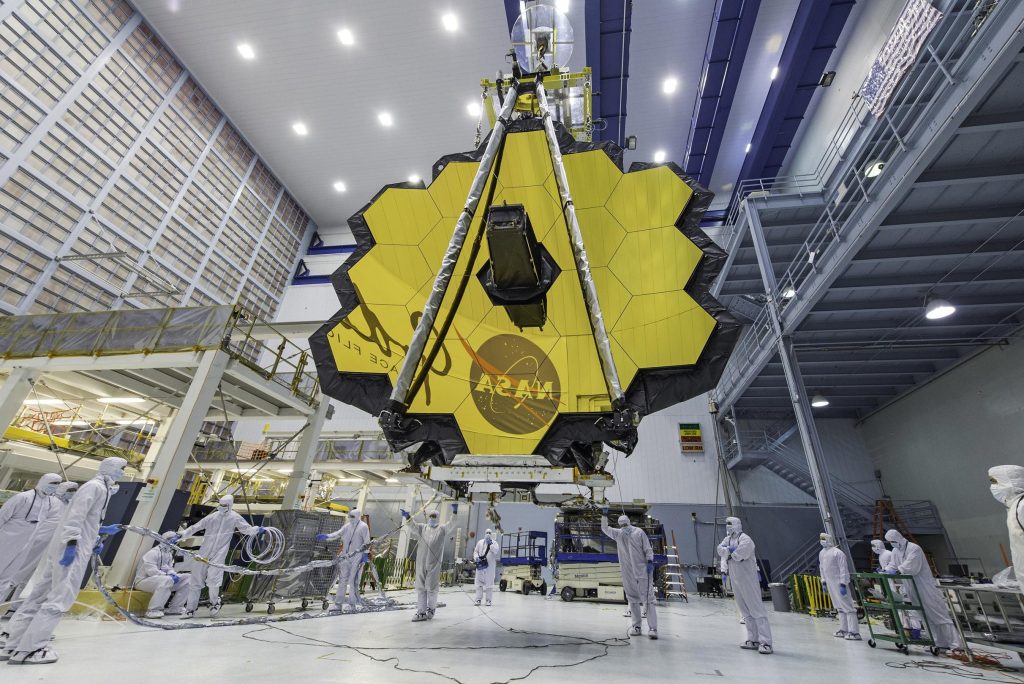
© AP
The James Webb Space Telescope will launch into space next Friday, December 24, from its base in French Guiana. The telescope, built by NASA, ESA, and CSA, is the largest telescope ever sent into space.
GVsource: Belgian
“It will be a very extraordinary mission,” says researcher Bart Vandenbusch of the Institute of Astronomy (KU Leuven). “From KU Leuven, we have been working for more than 15 years on one of four science instruments installed on the telescope. The launch next week will be a very exciting moment.”
The cost price of the project also testifies to its uniqueness. While the average ESA project is estimated at €600 million, this cost no less than €13 billion. The telescope has a 6.5-meter mirror, made up of 18 hexagonal segments. This other well-known and important telescope, the Hubble telescope launched into space in the early 1990s, has a mirror of only 2.4 meters.
The Webb telescope will detect infrared light in space with a sensitivity 100 times greater than the Hubble telescope. This makes it possible to look back in time 13.5 billion years and see the first galaxies after the Big Bang. By observing infrared radiation, Webb can see stars and planetary systems that form in dust clouds.
The Webb telescope will be launched from the European launch site in French Guiana, and by an Ariane 5 rocket. “A very reliable rocket,” says Vandenbusch. The telescope will then float in orbit, one and a half million kilometers from Earth. The first routine measurements will be possible six months after launch. The telescope is expected to operate for at least five years, with the ambition to remain so for ten years.
The launch will take place on Friday 24 December at approximately 1.20pm Belgian time. The launch can be followed online via the ESA and NASA websites.

“Thinker. Coffeeaholic. Award-winning gamer. Web trailblazer. Pop culture scholar. Beer guru. Food specialist.”







More Stories
Comet Tsuchinshan-Atlas is ready to shine this fall
Sonos isn’t bringing back its old app after all
Indiana Jones and the Great Circle is coming to PS5 in spring 2025